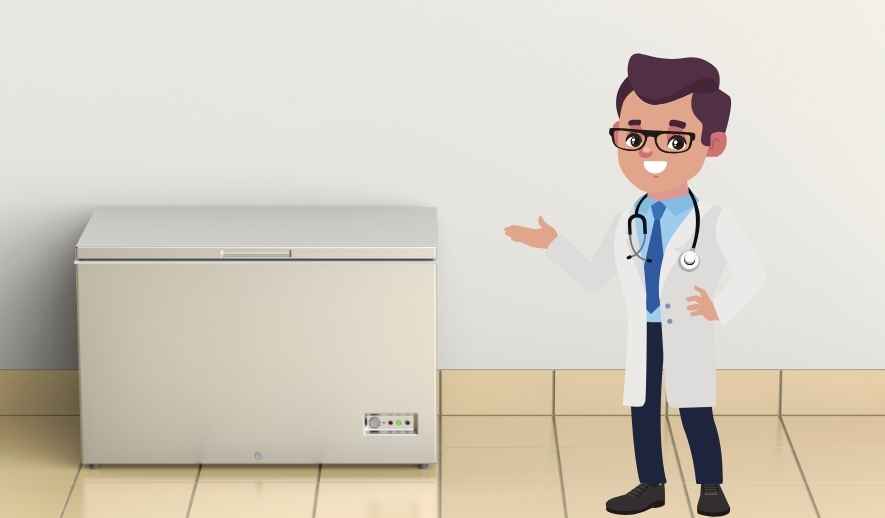In the ever-evolving landscape of healthcare, effective financial management is crucial for ensuring that hospitals and medical facilities remain sustainable and can deliver quality care. One of the key components of this financial management is Hospital Revenue Cycle Management (RCM). As you navigate the complexities of healthcare billing, it’s essential to understand what RCM is, its significance, and how it affects the overall financial health of a hospital. This article aims to provide you with an informative overview of hospital revenue cycle management, outlining its processes, challenges, and best practices.
What is Hospital Revenue Cycle Management?
Hospital Revenue Cycle Management refers to the process that healthcare facilities use to track patient care episodes from registration and appointment scheduling through the final payment of the balance. This intricate process involves various steps, including patient registration, insurance verification, provider coding, billing, and collections.
The primary goal of RCM is to maximize revenue while minimizing the costs associated with the billing process. RCM is a crucial aspect for hospitals, given that it encompasses the financial health of the institution, affects its ability to deliver quality care, and ultimately plays a significant role in patient satisfaction.
Key Components of Revenue Cycle Management
To better understand RCM, let’s dissect its core components:
- Patient Registration: All revenue cycle management begins with patient registration. It is essential to collect accurate demographic and insurance information to ensure successful billing.
- Insurance Verification: Confirming a patient’s insurance coverage before they receive services is vital. This step involves checking eligibility, benefits, and any potential patient out-of-pocket costs.
- Medical Coding: Medical coding is the process of converting healthcare diagnoses, procedures, and equipment into universal medical alphanumeric codes. Accurate coding is crucial for claims submission and reimbursement.
- Claims Submission: After coding, the healthcare provider submits claims to insurance companies. Claims must be devoid of errors to avoid denials and delays in payment.
- Payment Posting: Tracking payments is vital for effective management. Once payments are received, they must be recorded accurately to understand the hospital’s financial status.
- Denial Management: Managing denials is a critical component of RCM. Hospitals must have processes in place to address and appeal denied claims promptly to recover revenue.
- Patient Collections: After insurance payments are processed, any remaining balance for patients needs to be collected. Clear communication and flexible payment options can help improve collection rates.
- Reporting and Analysis: Finally, hospitals must analyze data from their revenue cycle to identify trends, streamline processes, and improve financial outcomes.
The Importance of Efficient Revenue Cycle Management
- Maximizes Revenue: Efficient RCM practices enable hospitals to increase revenue by reducing claim denials, improving collections, and streamlining operations.
- Enhances Patient Satisfaction: Clear billing processes and transparent communication with patients regarding their financial responsibilities improve satisfaction and trust in the healthcare provider.
- Boosts Operational Efficiency: By identifying bottlenecks in the revenue cycle, hospitals can streamline operations, allocate resources better, and reduce administrative costs.
- Improves Cash Flow: Efficient RCM leads to faster payment turnaround from both insurance companies and patients, ensuring better cash flow for the hospital’s operations.
- Supports Regulatory Compliance: Adhering to healthcare regulations and payer requirements is essential to avoid penalties. Having a robust RCM process in place minimizes compliance risks.
Challenges in Hospital Revenue Cycle Management
While effective RCM is necessary, hospitals face several challenges:
- Complexity of Insurance Claims: The variety of insurance plans and their respective rules can complicate the billing process, leading to increased denials and delays in payments.
- Staffing Issues: Finding and retaining qualified staff for specific RCM roles—such as coding specialists—can be challenging due to high turnover rates and the need for continual training.
- Technological Integration: Implementing modern technology solutions to enhance RCM processes can be costly and require time for staff adaptation.
- Patient Payment Responsibility: As high-deductible insurance plans become more common, patients face greater financial responsibilities, leading to challenges in collecting payments.
- Regulatory Changes: Constant changes in healthcare regulations and billing rules require hospitals to stay updated and adjust their processes accordingly.
Best Practices for Effective RCM
- Invest in Training: Ensure your staff is continually trained on best practices in coding, billing, and regulatory compliance.
- Utilize Technology: Implement comprehensive RCM software solutions to automate processes like claims submission, payment posting, and tracking denials.
- Focus on Customer Service: Provide clear communication regarding billing practices and patient responsibilities to improve satisfaction and collection rates.
- Monitor KPIs: Regularly assess your RCM metrics—such as days in accounts receivable, claim denial rates, and patient payment metrics—to identify areas needing improvement.
- Create a Denial Management Plan: Formulate strategies to address and prevent claim denials, ensuring timely appeals and adjustments.
FAQs About Hospital Revenue Cycle Management
1. What is the average time for a claim to be processed?
The average time for a claim to be processed can vary widely depending on factors such as the payer and the complexity of the claim. Generally, it can take anywhere from a few days to several weeks post-submission.
2. How can hospitals reduce claim denials?
Hospitals can reduce claim denials through thorough documentation, proper coding, and ensuring accurate patient information is collected during registration.
3. What role does technology play in RCM?
Technology simplifies and automates the RCM process, improving accuracy, efficiency, and reporting capabilities, thereby expediting payment cycles.
4. Why is patient communication important in RCM?
Effective communication with patients regarding their financial responsibilities helps in reducing confusion and improving collections.
5. How can I assess the effectiveness of a hospital’s RCM process?
Hospitals can assess their RCM process through key performance indicators (KPIs) such as days in accounts receivable, cash collections as a percentage of net patient revenue, and claim denial rates.
Conclusion
In conclusion, Hospital Revenue Cycle Management is a critical aspect of financial health for healthcare providers. By understanding its processes and challenges and employing best practices, hospitals can maximize their revenue while ensuring that patient care remains a top priority. The use of advanced technologies, combined with proficient staff training and effective communication strategies, can further enhance the revenue cycle. If your organization is looking to streamline its RCM processes, partnering with a specialized provider like DWP Medical can offer valuable expertise and innovative solutions tailored to your needs. By taking proactive steps in managing your revenue cycle effectively, you can pave the way for better financial outcomes and improved patient satisfaction.



